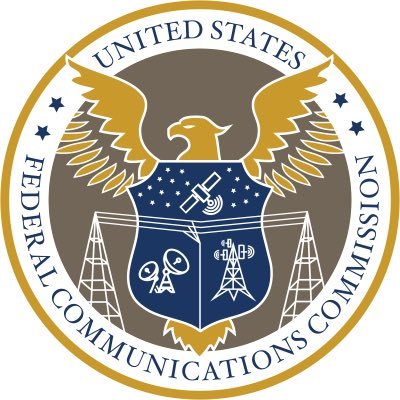The Proposed Rulemaking Undermines an Open Internet and Is beyond the FCC’s Jurisdiction
As a political matter, the problem that the NTIA faces is a vexing one. Section 230 was written cleanly and was intended to keep the government away from interfering in moderation. Speaking on the House floor, Representative Chris Cox said that Section 230, “will establish as the policy of the United States that we do not wish to have content regulation by the Federal Government of what is on the Internet, that we do not wish to have a Federal Computer Commission with an army of bureaucrats regulating the Internet because frankly the Internet has grown up to be what it is without that kind of help from the Government.”1141 Cong. Rec. H8470 (daily ed. August 04, 1995)(statement of Rep. Cox.).
The NTIA petition is squarely opposed to this view of government as a limited player, rooted in a desire to make online platforms, in the phrasing of the Executive Order, “a 21st century equivalent of the public square.” To sidestep Section 230’s construction and go after social media companies as directed by Trump’s EO, the NTIA has been forced to invent a new interpretation of Section 230 centered on editorial decisions.
As noted in the petition, “The FCC should determine how section 230 can best serve its goals of promoting internet diversity and a free flow of ideas, as well as holding dominant platforms accountable for their editorial decisions, in new market conditions and technologies that have emerged since the 1990s.” This new view of Section 230 is a dangerous one. Neither the language of the statute nor the legislative intent would support an interpretation of this law.2See, e.g., Ron Wyden, I wrote this law to protect free speech. Now Trump wants to revoke it, CNN, June 9, 2020, https://www.cnn.com/2020/06/09/perspectives/ron-wyden-section-230/index.html; See also, Christopher Cox, Policing the Internet: A Bad Idea in 1996 — and Today, RealClearPolitics, June 25, 2020, https://www.realclearpolitics.com/articles/2020/06/25/policing_the_internet_a_bad_idea_in_1996_–_and_today.html.
The current request from NTIA asks the FCC to:
- Clarify the relationship between subsections (c)(1) and (c)(2), lest they be read and applied in a manner that renders (c)(2) superfluous as some courts appear to be doing;
- Specify that Section 230(c)(1) has no application to any interactive computer service’s decision, agreement, or action to restrict access to or availability of material provided by another information content provider or to bar any information content provider from using an interactive computer service;
- Provide clearer guidance to courts, platforms, and users, on what content falls within (c)(2) immunity, particularly section 230(c)(2)’s “otherwise objectionable” language and its requirement that all removals be done in “good faith;”
- Specify that “responsible, in whole or in part, for the creation or development of information” in the definition of “information content provider,” 47 U.S.C. § 230(f )(3), includes editorial decisions that modify or alter content, including but not limited to substantively contributing to, commenting upon, editorializing about, or presenting with a discernible viewpoint content provided by another information content provider; and
- Mandate disclosure for internet transparency similar to that required of other internet companies, such as broadband service providers.
We need to evaluate this petition backwards, beginning with the goal, which is to get the FCC in the middle of contentious political debates surrounding content moderation on the internet.to begin with, 47 USC § 230(c)(1) states that “No provider or user of an interactive computer service shall be treated as the publisher or speaker of any information provided by another information content provider.” Meanwhile (c)(2)(A) shields these users and providers from liability for any action “taken in good faith to restrict access to or availability of material that the provider or user considers to be obscene, lewd, lascivious, filthy, excessively violent, harassing, or otherwise objectionable, whether or not such material is constitutionally protected.”
Subsection (c)(2)(A) isn’t often invoked in court cases, although it does provide an easy means of dismissing non-substianal lawsuits in content filtering cases. Rather, it is subsection (c)(1) where there is considerable contention because it offers broader liability protection. Even though the law makes no connection between subsections (c)(1) and (c)(2), the NTIA wants to tie two together. In doing so, the agency hopes that the FCC will “clarify and determine the circumstances under which a provider of an interactive computer service that restricts access to content in a manner not specifically protected by subparagraph (c)(2)(a) may also not be able to claim protection under subparagraph (c)(1).” If (c)(1) were connected to (c)(2) (A) somehow, then the FCC might be able to regulate, but only if there were a further change to the law which redefined what it means for a filtering practice to be “otherwise objectionable.” This interpretation of section 230 is a contortion.
The petition asks the Commission to issue rules clarifying an area of the law with which the agency never interacts and has no influence to change. Section 230 delegates no rulemaking authority to the FCC, or any agency for that matter, because the statue is directed at claims of liability, which are resolved in courts. The Commission not only lacks jurisdiction to issue rules, it is not clear that this petition if approved, would move the ball substantially.
The Impact of Proposed Rulemaking
Instituting the changes that the NTIA desires would be disastrous. First off, the NTIA worries that (c)(1) gives platforms immunity from “contracts, consumer fraud, revenge pornography, anti-discrimination civil rights obligations, and even assisting in terrorism.” In other words, the NTIA is concerned that Section 230 is granting some online platforms immunity in cases dealing with serious crimes. And yet, the petition continues:
“The problem of overly expansive interpretations for section 230 is not merely hypothetical. Tens of thousands of Americans have reported, among other troubling behaviors, online platforms ‘flagging’ content as inappropriate, even though it does not violate any stated terms of service; making unannounced and unexplained changes to company policies that have the effect of disfavoring certain viewpoints; and deleting content and entire accounts with no warning, no rationale, and no recourse.”
These two concerns cannot be reconciled with one another. While our others might think otherwise, when a user has content taken down from a platform or somehow flagged, that isn’t a crime and it should not be. And yet, the NTIA wants this action to rise to the level of fraud and assisting terrorism. Only then would the Commission be injected into the middle of content moderation debates.
As a practical matter, unraveling Section 230’s liability protections will not mean less content moderation. It would encourage more aggressive takedowns across the board. It will make these companies more fearful of lawsuits and expand their content moderation practices, leading to a limiting of what is said on the Internet. If Jack Dorsey and Mark Zuckerberg find themselves liable for the things President Trump says, they have no other choice than to aggressively police the content he creates.
It is no secret that social media companies are disliked by policymakers within the Beltway. People from both sides of the aisle frequently criticize the content moderation decisions that social media platforms make. Even Presidential candidate Joe Biden has also been critical of the law.3 Lauren Feiner, What is Section 230?, CNBC, May 28, 2020, https://www.cnbc.com/2020/05/28/what-is-section-230.html. The petition underscores the “significant concerns about barriers to entrance for new social media companies as well as social media’s role with other edge providers in creating mediation markets.” But, it is simply not true, as the NTIA claims, that “Much of social media’s overarching influence and power stems from the immunities it enjoys under expansive interpretations of section 230 of the Communications Decency Act.” The power of social media comes from many sources, including their technical expertise, organizational structure, their vast array of products, as well as the content shared over the platforms. Reforming Section 230 won’t change these fundamentals. Rather, the effect would be more burdensome rules which will drive up the cost of compliance and make disruption all that more difficult.
A very real example of this problem is detailed in Paul Matzko’s new book, The Radio Right. After WWII, a new brand of conservative radio began to emerge. In the early 1960s, these news voices really took off. Facing criticism from a group of women who were opposed to the relaxing of trade with Poland, President Kennedy began to crack down on these stations using both the Internal Revenues Service and the Commission through the Fairness Doctrine.4Donald P. Mullally, The Fairness Doctrines: Benefits and Costs, 33 Public Opinion Quarterly 577 (1969). Eventually, the Democratic National Committee was able to leverage these complaints and win free time for the Johnson campaign during the crucial electioneer- ing period in the summer and fall of 1964.5Paul Matzo, The Secret History of Right-Wing Radio Building Tomorrow (2020), https://www.libertarianism.org/podcasts/building-tomorrow/secret-history-right-wing-radio (last visited Sep 15, 2020). They were also able to shut down the nascent voices on radio. When President Nixon took office, he continued using the power of the FCC to undercut his Democratic rivals.
The lesson from this part of history needs to be heeded for Section 230 reform. As Matzko explained, these reforms at the FCC in the 1960s created the tools for censorship. Today we face the same problem. Reforming 230 will give politicians the “tools of censorship, creating a chilling effect on political discourse on the internet.”6Id. Moreover, taking up the order and issuing rules would mean an abrupt change for the Commission that would likely necessitate the repeal of the Restoring Internet Freedom Order. In that order, the FCC reversed course from previous administrations and claimed that it lacked authority to issue key rules of the Open Internet Order. If the Commission were to again suggest that it can regulate in Section 230, it would open the agency to questions about its choices being arbitrary and capricious.
Conclusion
The NTIA wants the Commission to take the monumental step of proposing rules to clarify Section 230. This petition needs to be rejected. The Internet has benefited from the salutary neglect created by Section 230.



 The FCC
The FCC American Experiment
American Experiment